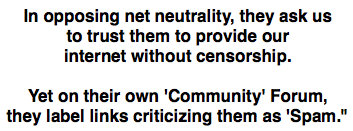
I mourn the loss of thousands of precious lives, but I will not rejoice in the death of one, not even an enemy. Returning hate for hate multiplies hate, adding deeper darkness to a night already devoid of stars. Darkness cannot drive out darkness: only light can do that. Hate cannot drive out hate: only love can do that. – Martin Luther King, Jr.
I started seeing this quote popping up in my Facebook feed last night. In response, let me say 2 things:
(1) It’s fake. Martin Luther King, Jr., didn’t say that. It’s loosely based on this quote.
(2) Do you remember your first time watching The Wizard of Oz as a kid? That feeling of elation in the moments after the witch melted and the munchkins and everyone else began to sing, “Ding dong, the witch is dead!”?
Whether rational or not, the figure of Osama Bin Laden — and our inability to find him — has loomed over our consciousness since September 11. His survival despite America’s might directed against him, despite the abhorrence of his crimes, suggested impotence and an inability to control events and affect our own fate. The knowledge that not only did he survive, but he continued to plan to kill and terrorize — that at any moment, some decision of his which we had no way of affecting could wreck the lives of thousands, even our own — loomed over us. But on May 1, 2011, order was restored and the villain taken down. And that is a catharsis worthy of storybooks. [reddit-me]
[reddit-me]
Voices urging restraint and caution at such moments of national catharsis are good and worthy. Because moments of catharsis can be distorted — they can turn to ugly emotions. Wisdom counsels that we “Rejoice not when thine enemy falleth, and let not thine heart be glad when he is overthrown.” It is unseemly to celebrate murder — and all too easy to demonize one’s enemies to justify resorting to violence. But as another wise man said, “A foolish consistency is the hobgoblin of little minds.”
And it was Martin Luther King who said, “the arc of history is long but it bends towards justice” — and even as this prophet of non-violence may not have condoned it — in Bin Laden’s violent end by American hands, there was justice.
An evil man who claimed theological justification and technological means to murder millions; who inspired, authorized and directed the killing of thousands; who wanted women confined to a second-class status; who directed the killings of the vast majority of Muslims as unclean unbelievers — an evil man who murdered 3,000 souls on one fateful September morning — this Sunday, he was removed from this world.
And the world is better for it.
And for that, we should all celebrate.
[Image by Dan Nguyen @ New York City licensed under Creative Commons.]


 [reddit-me]I’ve started
[reddit-me]I’ve started  government regulation, and the blocking of financing to prevent the disruptive technology from taking off.
government regulation, and the blocking of financing to prevent the disruptive technology from taking off.




